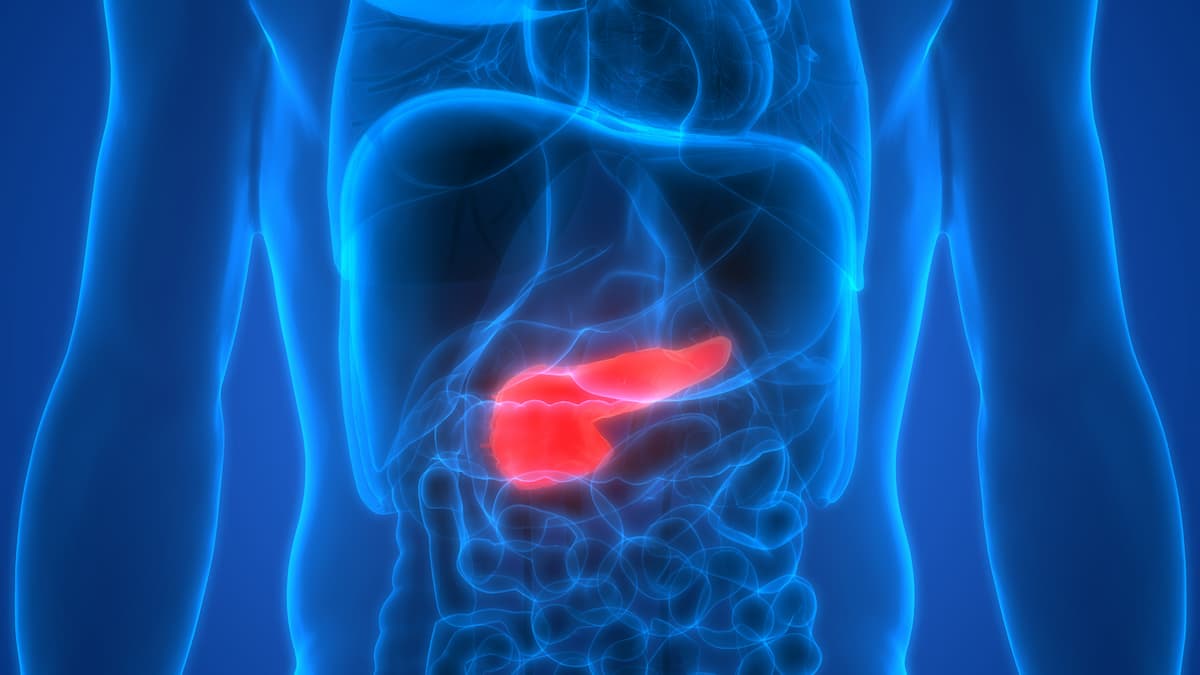FDA Grants Orphan Drug Designation to Osemitamab in Pancreatic Cancer
Data from a Chinese phase 1/2 trial suggest that osemitamab monotherapy may yield prolonged responses in Claudin18.2-expressing pancreatic cancer.
The FDA has granted orphan drug designation to the anti-Claudin18.2 (CLDN18.2) monoclonal antibody osemitamab (TST001) for the treatment of patients with pancreatic cancer, according to a press release from Transcenta Holding Limited.1
"We believe [osemitamab] has the potential to be transformative for [patients with] advanced pancreatic adenocarcinoma who lack effective therapeutic options," according to the manufacturers of osemitamab.

Investigators previously presented preliminary data from a Chinese phase 1/2 trial (NCT04495296) that spotlit the anti-tumor activity of osemitamab monotherapy in CLDN18.2-low pancreatic cancer at the 2022 International Gastric Cancer Congress.
According to the data, 1 patient receiving 6 mg/kg of osemitamab once every 3 weeks who previously received treatment with chemotherapy, anti-PD1, and anti-VEGF therapies had a confirmed partial response (PR) after 12 weeks.2 Investigators also confirmed additional PRs with the recommended phase 2 dose (RP2D) in newly enrolled monotherapy cohorts including patients with gastric cancer and pancreatic cancer harboring CLDN18.2.
The most common adverse effects (AEs) in the trial included nausea, vomiting, anemia, abdominal distension, and constipation. Overall, investigators reported that osemitamab had a manageable and tolerable safety profile.
Osemitamab also demonstrated anti-tumor activity in CLDN18.2-expressing pancreatic tumor models regardless of KRAS mutation status in preclinical studies.
“Osemitamab is currently being evaluated for the treatment of different [CLDN18.2]-positive indications,” Caroline Germa, MD, executive vice president of Global Medicine Development and chief medical officer of Transcenta, said in the press release.1 “We believe it also has the potential to be transformative for [patients with] advanced pancreatic adenocarcinoma who lack effective therapeutic options.”
The high-affinity humanized anti-CLDN18.2 monoclonal antibody targets CLDN18.2-expressing tumor cells through antibody-dependent cellular cytotoxicity and complement-dependent cytotoxicity mechanisms. The agent is manufactured with the Immune Tolerance Breaking Technology platform.
Investigators of the Chinese, open-label, multi-center phase 1/2 trial evaluated the safety, tolerability, and preliminary efficacy of osemitamab in patients with locally advanced or metastatic solid tumors.
In the initial dose escalation phase, patients received osemitamab intravenously once every 2 or 3 weeks across different dosing levels. Investigators designated 10 mg/kg intravenously every 3 weeks as the RP2D. The experimental monotherapy cohorts included patients with gastric or gastroesophageal junction (GEJ) cancers, ductal adenocarcinoma of the pancreas, or other advanced or metastatic solid tumors with CLDN18.2 expression.
The primary end points of the trial included the frequency and severity of AEs as well as determining the maximum-tolerated dose. Secondary end points included the time to maximum observed plasma concentration, immunogenicity, objective response rate, duration of response, disease control rate, and progression-free survival.
Patients 18 years or older with positive CLDN18.2 expression in tumor tissue as confirmed via immunohistochemistry were eligible for enrollment in the monotherapy dose expansion cohorts. Additional inclusion criteria included having an ECOG performance status of 1 or 0, a life expectancy of at least 3 months, and at least 1 measurable lesion per RECIST v1.1 criteria.
Patients who previously received radiotherapy or other systematic anti-tumor drug therapies within 4 weeks of initiating study treatment were not eligible for enrollment. Patients were also unsuitable for enrollment if they had previously received CLDN18.2 therapy.
The FDA previously granted orphan drug designation to osemitamab for the management of gastric and GEJ cancers in 2021.
Osemitamab is also under investigation as a monotherapy or in combination with nivolumab (Opdivo) or standard-of-care chemotherapy for various advanced and/or metastatic tumors in a United States, open-label phase 1/2a trial (NCT04396821).
References
- Transcenta's osemitamab (TST001) targeting Claudin18.2 granted orphan drug designation for treatment of pancreatic cancer. News release. Transcenta Holding Limited. March 29, 2023. Accessed April 4, 2023. prn.to/3ZGAPUU
- Transcenta presented safety / tolerability and preliminary anti-tumor activity data in gastric and pancreatic cancers of TST001 monotherapy from China phase I clinical trial at the 2022 International Gastric Cancer Congress. News release. Transcenta Holding Limited. March 9, 2022. Accessed April 4, 2023. prn.to/3zwGGlm